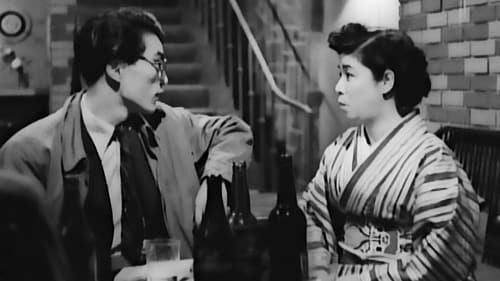
Masseur
Hirosuke (Teruo Yoshida), um estudante de medicina com quase nenhuma lembrança do seu passado, está preso num asilo, apesar de ser perfeitamente são. Depois de escapar do hospício, e sendo enquadrado pelo assassinato de uma menina de circo, ele vê a foto de um homem recentemente falecido, Genzaburo Komoda, a quem ele tem uma estranha semelhança. Ao fingir ter sido ressuscitado, Hirosuke assume a identidade do homem morto, enganando todos, incluindo a viúva e amante de Komoda. Enquanto na casa de Komoda, Hirosuke recorda memórias que o convencem a viajar para uma ilha próxima, a casa de Jogoro, o pai de Genzaburo. Enquanto na ilha, Hirosuke não só descobre os planos de Jogoro para construir sua "comunidade ideal" (transformando seres humanos perfeitamente normais em aberrações hediondas), mas também a terrível verdade por trás da sua própria identidade.

Home drama about tin craftsmen and their families in downtown Tokyo. Though poor, they do not lose their cheerfulness or give in to oppression.

A luckless geisha struggles to make a living for herself and her young son.

Kane, the maid
Hideko, a young Baseball fan, determined to cheer for her favourite baseball team by creating a new song for them.

Song of the White Orchid was a co-production of Toho and Mantetsu, the railway that served the colonial region of Manchuria, and the first film in the Kazuo Hasegawa/Shirley Yamaguchi (Ri Koran) “Continental Trilogy.” Handsome Hasegawa (representing Japan) runs up against an impertinent Yamaguchi (representing the continent); not surprisingly, in the course of the film the woman comes around and realizes the benevolent intentions of the Japanese. In Song of the White Orchid Yamaguchi leaves Hasegawa, who plays an expatriate working for the railway, because of a misunderstanding. She joins a communist guerilla group plotting to blow up the Manchurian railway. Learning of the subterfuge that led to the misunderstanding, she renews her faith in Hasegawa—and by extension Japan—and tries to undermine the plot.



